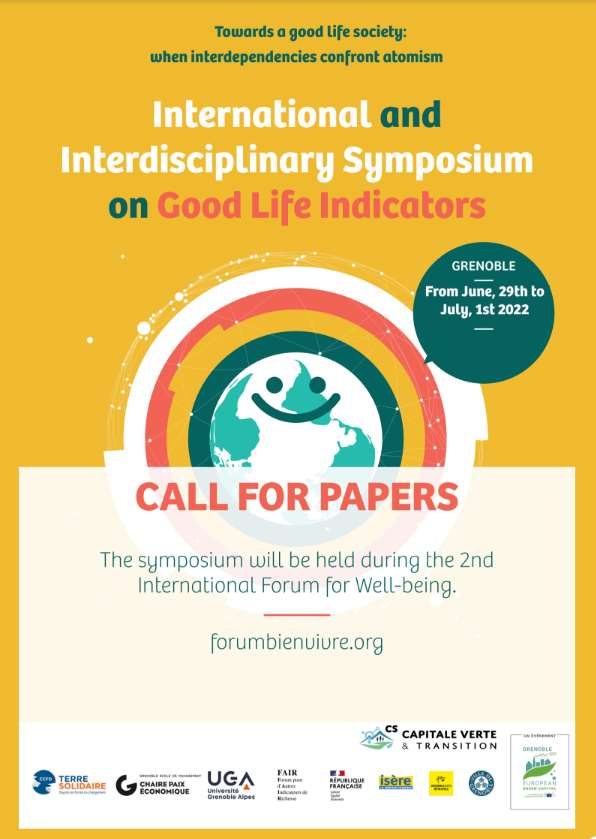Scientific symposium
This International and Interdisciplinary scientific symposium is part of the 2nd International Forum for Well-being, which held in Grenoble from June 29 to July 1, 2022.
The Forum is a continuation of the research-action on sustainable territorial well-being indicators (IBEST) in Grenoble, the 1st international forum for well-being organized in 2018, and the creation of Cap bien-vivre. It is integrated into the programming of the Grenoble Green Capital & Transition scientific committee.
The Forum will offer time and space for sharing experiences, data and debates between diverse participants, from researchers and politicians, to NGOs, companies, and citizens, on the conditions for sustainable development and the good life in our contemporary societies.
In 2018, the Forum’s scientific symposium dealt with the collective definition of the well-living (or the good life, among other terms), the methods and uses of good life indicators, along with citizen participation and the contribution of research to the good life. Building on these achievements, the second edition of the scientific symposium aims to go a step further towards exploring how a paradigm shift in favor of the good life might be supported, by emphasizing the topic of interdependencies.
Towards a good life society: when interdependencies confront atomism

The present call for papers focuses on four main topics:
- Shifting the paradigm
- Social, economic and ecological interdependencies
- Interdependencies between individuals and collectives
- Territorial, interscalar and historical interdependencies
